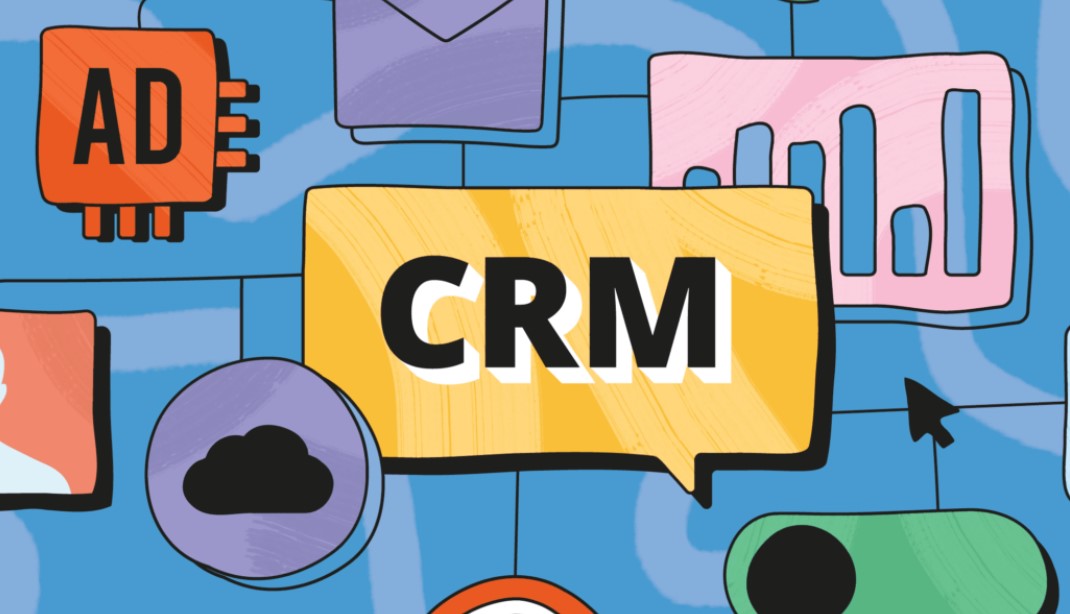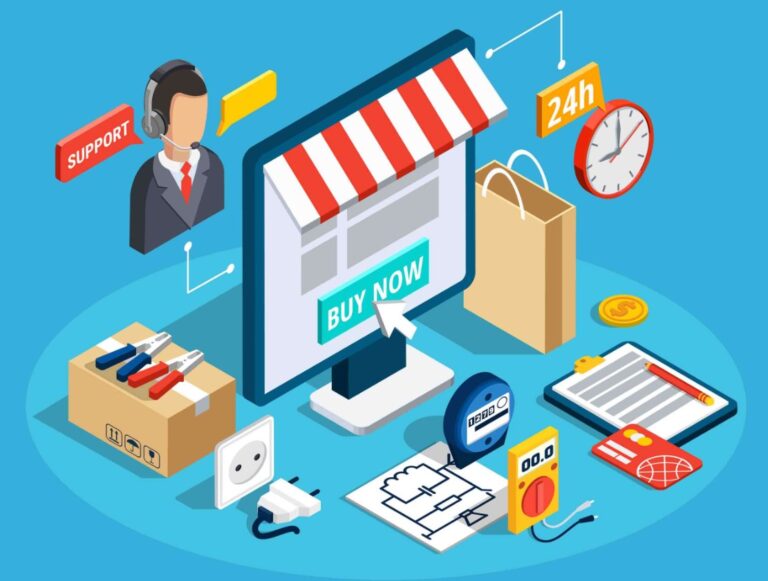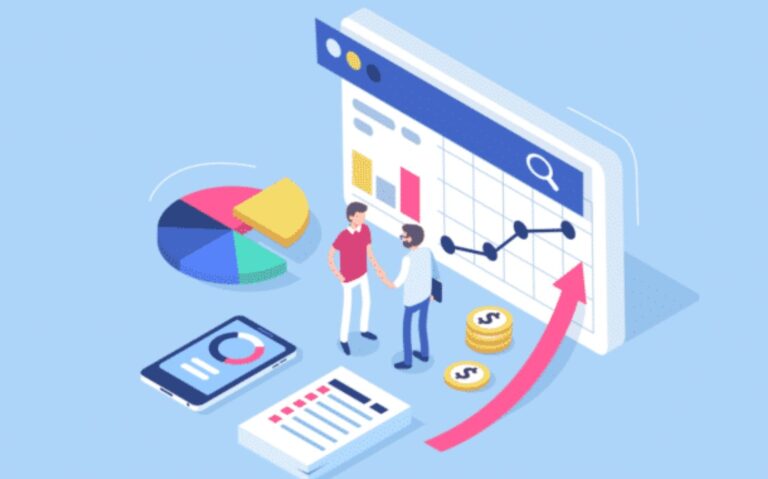Top 5 CRM Software Solutions for Small and Medium Businesses
Customer Relationship Management (CRM) software is an essential tool for small and medium businesses (SMBs) looking to streamline customer interactions, improve sales processes, and grow their businesses efficiently. Choosing the right CRM solution can be daunting with so many options on the market, but we’ve done the research for you. Here are the top 5 CRM software solutions for SMBs, complete with detailed product information, benefits, pricing, and real-world use cases. Let’s get started!
Why CRM Software is Important for Small and Medium Businesses

Customer Relationship Management (CRM) software is more than just a tool for organizing contacts. For small and medium businesses (SMBs), CRM software can play a pivotal role in helping manage customer interactions, streamline sales processes, and scale operations efficiently. Here’s a more specific breakdown of why CRM software is essential for SMBs:
1. Centralized Customer Data
One of the most critical challenges for SMBs is managing customer data across various platforms. From emails to phone calls and social media interactions, businesses need a centralized hub to keep track of every customer touchpoint.
- Why it Matters: A CRM stores all your customer information in one place. This means every team member has access to the same up-to-date data, reducing the chances of missing crucial information or duplicating efforts.
- Benefit for SMBs: By centralizing customer data, a CRM ensures that you have a complete, unified view of your customers’ history and interactions. This improves the accuracy and quality of customer service, helping you personalize your approach and build stronger relationships with clients.
For example, HubSpot CRM allows businesses to keep track of every customer interaction, whether it’s an email, phone call, or support ticket, giving the entire team easy access to detailed customer profiles.
2. Streamlining Sales Processes
For SMBs with limited resources, optimizing the sales process is crucial. CRM software helps businesses manage their sales pipelines, automate repetitive tasks, and close deals faster.
- Why it Matters: Without a CRM, managing leads and opportunities manually can lead to missed follow-ups, lost sales, and inefficient use of time. CRM software automates key parts of the sales process, such as sending follow-up emails, scheduling calls, and moving deals through the sales funnel.
- Benefit for SMBs: Automation not only frees up time for sales teams but also ensures that no lead is neglected. Tools like Pipedrive are built specifically for managing sales pipelines, allowing SMBs to visualize their sales process and focus on high-priority tasks.
With sales-focused CRMs like Pipedrive, small businesses can keep track of every stage of their sales funnel, making it easier to see which leads are most likely to convert and where potential bottlenecks lie.
3. Improving Customer Retention
Customer retention is one of the most cost-effective ways to drive growth. CRM software helps businesses retain customers by enabling better follow-ups, personalized communication, and prompt issue resolution.
- Why it Matters: It’s far more expensive to acquire new customers than to retain existing ones. CRM systems keep track of customer satisfaction, behavior, and engagement, making it easier to identify potential issues before they escalate.
- Benefit for SMBs: By automating customer follow-ups and keeping detailed notes on customer preferences and past interactions, CRM software helps businesses deliver personalized experiences that build loyalty. This can lead to higher retention rates and more repeat business.
For instance, Freshworks CRM includes built-in communication tools that allow businesses to engage with customers seamlessly across multiple channels, helping improve response times and enhance customer satisfaction.
4. Data-Driven Decision Making
In a competitive market, data is invaluable. CRM software provides detailed analytics and reporting that allow SMBs to make informed decisions based on real-time insights.
- Why it Matters: Without a CRM, it’s difficult to collect and analyze data on sales performance, customer behavior, and marketing effectiveness. CRM tools provide easy-to-read reports that help businesses understand what’s working and what isn’t.
- Benefit for SMBs: With built-in analytics, CRM systems can provide valuable insights into customer buying patterns, sales team performance, and overall business health. This enables SMBs to identify trends, optimize their processes, and make data-driven decisions to grow their business.
For example, Zoho CRM offers powerful reporting features, enabling SMBs to track metrics such as lead conversion rates, deal progress, and revenue forecasts, allowing for more accurate goal setting and strategic planning.
5. Scalability for Growing Businesses
As SMBs grow, their customer base and operational complexity also expand. CRM software provides the necessary scalability to manage this growth efficiently.
- Why it Matters: Small businesses often start with simple systems like spreadsheets or basic contact management, but these systems become inefficient as the business scales. A CRM grows with your business, allowing you to add new users, automate more tasks, and integrate with other systems as your needs evolve.
- Benefit for SMBs: With a scalable CRM like Salesforce Essentials, businesses can seamlessly expand their operations without having to overhaul their systems. This allows for better resource management and supports the long-term growth of the company.
As your SMB grows, you can add more users, automate more workflows, and integrate your CRM with other tools like email marketing or customer support software to build a comprehensive customer management system.
6. Enhanced Collaboration Across Teams
For SMBs, team collaboration is critical, especially when different departments (sales, marketing, and customer support) need to work together to serve customers effectively. CRM software facilitates this by enabling seamless sharing of customer information across teams.
- Why it Matters: Without a CRM, information is often siloed, making it difficult for teams to collaborate. A CRM system ensures that all customer-related data is accessible to everyone who needs it, fostering better communication and collaboration.
- Benefit for SMBs: CRM systems like HubSpot CRM allow all teams to access the same customer data in real-time, ensuring that marketing, sales, and support teams are always on the same page. This leads to more efficient workflows and better customer experiences.
When sales teams have access to the same data as the support team, they can address customer needs more effectively, leading to higher satisfaction and retention.
CRM software is an indispensable tool for small and medium businesses looking to grow and scale efficiently. By centralizing customer data, streamlining sales processes, improving customer retention, and providing data-driven insights, a CRM enables SMBs to work smarter, not harder. Whether you’re a startup just getting off the ground or an established business looking to expand, implementing the right CRM can make all the difference in how you manage customer relationships and drive long-term success.
The Top 5 CRM Software Solutions for SMBs
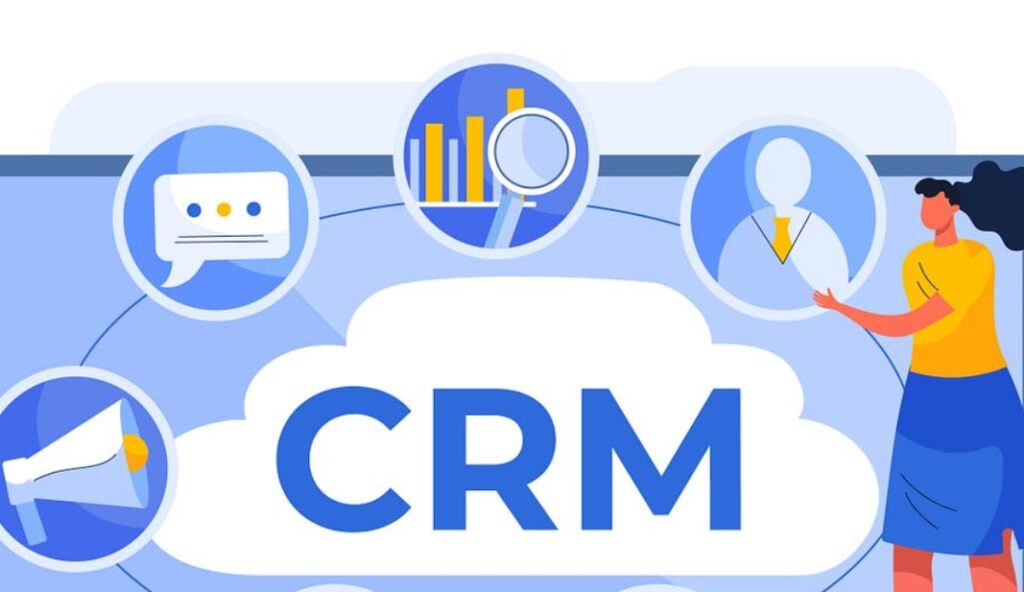
We’ve evaluated the top CRM tools to help SMBs find the best fit based on functionality, pricing, and ease of use. Here’s a detailed look at five CRM solutions:
1. HubSpot CRM
HubSpot CRM is a popular choice for small businesses thanks to its free version and powerful features. It’s known for its user-friendly interface and integration with HubSpot’s marketing and sales tools.
- Pros: Free to start, user-friendly interface, integrates with HubSpot marketing and sales tools.
- Cons: Advanced features require paid upgrades.
- Price: Free with paid plans starting at $50/month.
- Features: Contact management, email marketing, sales automation, deal tracking, reporting dashboards.
- Use Case: Small businesses looking for an easy-to-use, scalable CRM with marketing automation capabilities.
- Where to Buy: HubSpot CRM Official Website
2. Salesforce Essentials
Salesforce Essentials is a CRM solution specifically designed for small businesses. It provides robust features that grow with your business, making it ideal for scaling teams.
- Pros: Highly customizable, scalable, advanced automation and reporting.
- Cons: Can be overwhelming for beginners due to its feature complexity.
- Price: $25/user/month.
- Features: Contact management, opportunity tracking, customizable dashboards, mobile app.
- Use Case: SMBs that need a CRM solution with enterprise-level capabilities as they scale.
- Where to Buy: Salesforce Essentials Official Website
3. Zoho CRM
Zoho CRM is a versatile, all-in-one CRM that is ideal for growing businesses looking for an affordable yet comprehensive solution. Its customizable interface and AI-powered sales tools make it a strong contender.
- Pros: Affordable pricing, AI-powered features, highly customizable.
- Cons: User interface can be confusing at first.
- Price: Free for up to 3 users; paid plans start at $12/user/month.
- Features: Sales automation, AI sales assistant, workflow automation, analytics, mobile app.
- Use Case: SMBs looking for a cost-effective CRM with advanced automation features.
- Where to Buy: Zoho CRM Official Website
4. Pipedrive
Pipedrive is known for its sales pipeline-focused CRM system, which simplifies tracking and managing deals, making it great for sales-driven SMBs. It offers intuitive features for managing contacts, deals, and communications.
- Pros: Sales pipeline-centric, easy-to-use interface, customizable.
- Cons: Limited features in lower-tier plans.
- Price: $14.90/user/month.
- Features: Sales pipeline management, deal tracking, customizable dashboards, integrations with third-party apps.
- Use Case: Sales-oriented SMBs that need an easy-to-manage CRM to track leads and deals.
- Where to Buy: Pipedrive Official Website
5. Freshworks CRM
Freshworks CRM, previously known as Freshsales, is a comprehensive solution offering built-in communication tools and automation. It’s perfect for SMBs that want to improve customer engagement.
- Pros: Built-in phone and email features, automation, intuitive design.
- Cons: Limited third-party integrations.
- Price: $15/user/month.
- Features: Contact management, email tracking, built-in phone, deal management, workflow automation.
- Use Case: SMBs seeking a CRM that integrates communication tools directly into the system.
- Where to Buy: Freshworks CRM Official Website
Comparison Table of CRM Software Solutions
| Product Name | Use Case | Price | Pros | Cons | Features |
|---|---|---|---|---|---|
| HubSpot CRM | Easy-to-use CRM with marketing tools | Free; Paid from $50/mo | Free, integrates with HubSpot’s marketing | Advanced features require upgrade | Contact management, sales automation |
| Salesforce Essentials | Scalable CRM with enterprise features | $25/user/month | Customizable, advanced reporting | Overwhelming for beginners | Opportunity tracking, mobile app |
| Zoho CRM | Affordable, AI-powered CRM | Free for 3 users; Paid from $12/mo | AI sales assistant, affordable | UI can be confusing | Workflow automation, mobile app |
| Pipedrive | Sales pipeline-focused CRM | $14.90/user/month | Sales-centric, intuitive interface | Limited features in lower-tier plans | Sales pipeline management, deal tracking |
| Freshworks CRM | Built-in communication tools | $15/user/month | Built-in phone and email | Limited third-party integrations | Workflow automation, deal management, emails |
Benefits of Using CRM Software for SMBs
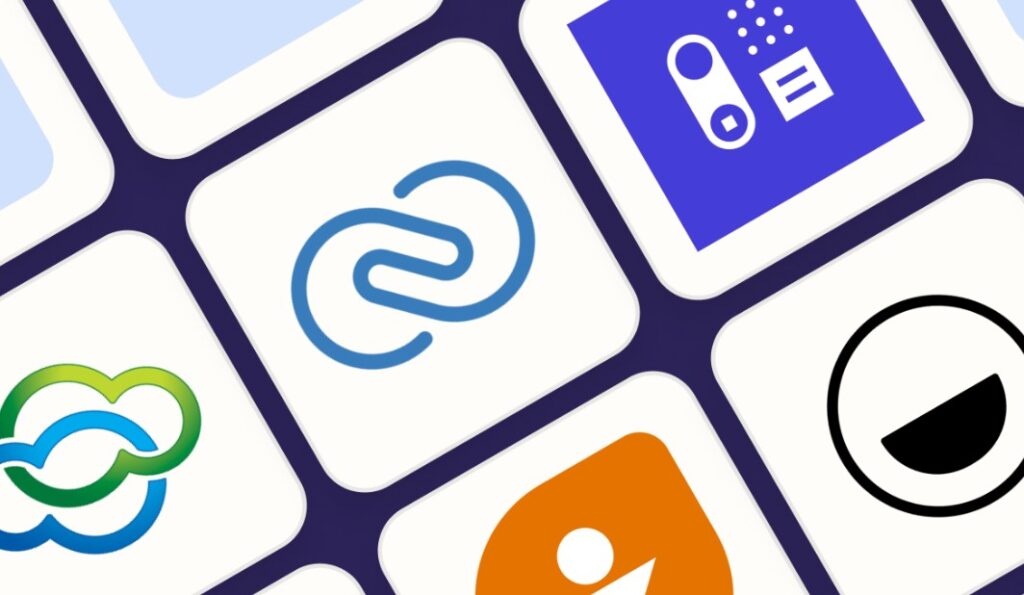
Centralized Data Management: A CRM helps organize all your customer data in one place, making it easy to track leads, interactions, and sales performance. This reduces duplication and error while increasing productivity.
Automation: With CRM tools like Zoho CRM, you can automate repetitive tasks such as data entry, follow-ups, and reporting. This gives your team more time to focus on closing deals and building relationships.
Improved Sales Forecasting: CRMs provide advanced analytics and reporting features that allow you to predict future sales trends based on current data. This enables better decision-making and goal-setting for your business.
Better Customer Relationships: CRMs like Freshworks CRM offer built-in communication tools that allow you to interact with customers more efficiently, keeping all communication in one system. This leads to improved customer satisfaction and loyalty.
How to Buy and Where to Buy CRM Software
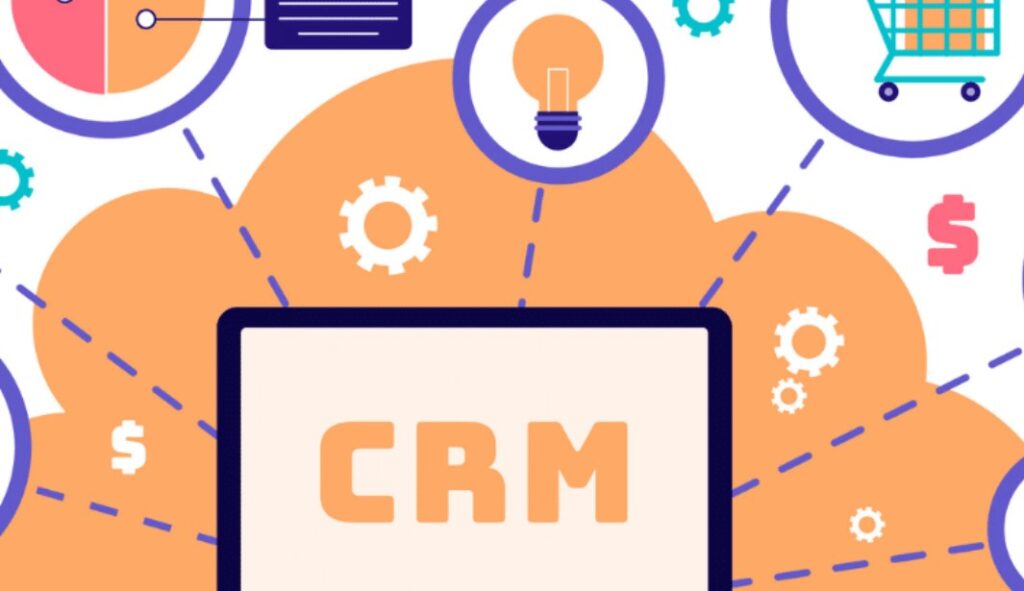
Purchasing a CRM solution is easy with online subscriptions and free trials. Here’s how you can get started:
- HubSpot CRM: Offers a free version to get started, with additional paid features for growing businesses.
- Salesforce Essentials: Tailored for SMBs, you can try a free trial or sign up directly for $25/user/month.
- Zoho CRM: Offers a free plan for up to 3 users, ideal for startups. Paid plans start at $12/user/month.
- Pipedrive: Try a 14-day free trial and upgrade to the plan that suits your business needs.
- Freshworks CRM: Offers free trials and affordable paid plans starting at $15/user/month.
CRM Use Cases: Solving Real Business Problems

CRM software can solve many challenges for SMBs. Here are some common use cases:
- Managing Sales Pipelines: Tools like Pipedrive are designed specifically to manage your sales process from lead generation to closing deals. By visualizing every stage of the pipeline, sales teams can prioritize tasks and focus on high-value leads.
- Automating Customer Follow-Ups: With Zoho CRM, SMBs can automate follow-up emails, reminders, and task assignments. This ensures no customer slips through the cracks and improves lead nurturing.
- Tracking Customer Interactions: HubSpot CRM allows SMBs to track every customer interaction, from initial contact to post-purchase support, ensuring seamless communication and enhanced customer experience.
FAQs
- What is the best CRM for a small business?
- HubSpot CRM is a great option for small businesses because it’s free, easy to use, and scalable as your business grows.
- Can I integrate CRM software with other tools I use?
- Yes! Most CRMs, like Salesforce Essentials and Zoho CRM, offer integrations with popular apps such as Gmail, Slack, and QuickBooks.
- Is CRM software expensive?
- CRM software is available at various price points. For instance, Zoho CRM starts at just $12/user/month, making it affordable for small businesses.
- Do I need technical skills to use CRM software?
- No. CRM tools like Pipedrive are designed with user-friendly interfaces that don’t require technical expertise.
- What size business should use a CRM?
- CRMs are beneficial for businesses of all sizes. Whether you’re a solopreneur or an SMB with a growing team, a CRM like Freshworks CRM can help streamline operations.
By implementing the right CRM solution, your SMB can increase productivity, boost sales, and build lasting customer relationships. Find the perfect fit for your business from our top CRM recommendations and start optimizing your operations today!
